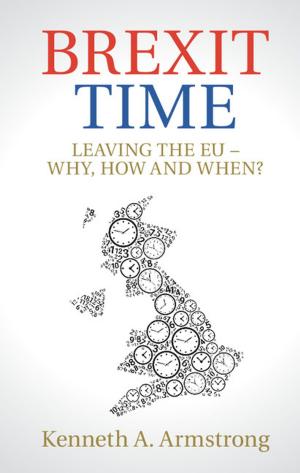The Cambridge History of the Cold War: Volume 1, Origins
Nonfiction, History, Modern, 20th Century, Social & Cultural Studies, Political Science| Author: | ISBN: | 9781316023846 | |
| Publisher: | Cambridge University Press | Publication: | January 26, 2012 |
| Imprint: | Cambridge University Press | Language: | English |
| Author: | |
| ISBN: | 9781316023846 |
| Publisher: | Cambridge University Press |
| Publication: | January 26, 2012 |
| Imprint: | Cambridge University Press |
| Language: | English |
This volume examines the origins and early years of the Cold War. In the first comprehensive reexamination of the period, a team of leading scholars shows how the conflict evolved from the geopolitical, ideological, economic and sociopolitical environments of the two world wars and interwar period, and discusses how markets, ideas and cultural interactions affected political discourse, diplomacy and strategy after World War II. The chapters focus not only on the United States and the Soviet Union, but also on critical regions such as Europe, the Balkans and East Asia. The authors consider the most influential statesmen of the era and address issues that mattered to people around the globe: food, nutrition and resource allocation; ethnicity, race and religion; science and technology; national autonomy, self-determination and sovereignty. In so doing, they illuminate how people worldwide shaped the evolution of the increasingly bipolar conflict and, in turn, were ensnared by it.
This volume examines the origins and early years of the Cold War. In the first comprehensive reexamination of the period, a team of leading scholars shows how the conflict evolved from the geopolitical, ideological, economic and sociopolitical environments of the two world wars and interwar period, and discusses how markets, ideas and cultural interactions affected political discourse, diplomacy and strategy after World War II. The chapters focus not only on the United States and the Soviet Union, but also on critical regions such as Europe, the Balkans and East Asia. The authors consider the most influential statesmen of the era and address issues that mattered to people around the globe: food, nutrition and resource allocation; ethnicity, race and religion; science and technology; national autonomy, self-determination and sovereignty. In so doing, they illuminate how people worldwide shaped the evolution of the increasingly bipolar conflict and, in turn, were ensnared by it.















